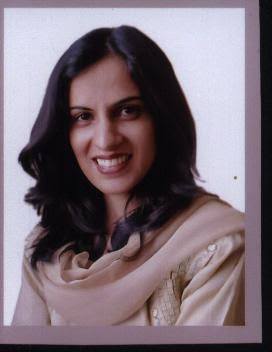Dr. Tabassum Iqbal
Designation : Lecturer
Specialization : Linguistics
Specialization : Linguistics
Email : tabassum.iqbal@uog.edu.pk
Office Number : +(92) 92532260000
Tabassum Iqbal is a linguistics expert and educator in the Department of English at the University of Gujrat, where she has been teaching since 2008. She holds an MPhil and PhD in Linguistics from the same institution. Throughout her career, she has taught various subjects within her field, inspiring students with her in-depth knowledge and engaging approach. In addition to her teaching, she has published research articles in both national and international HEC-recognized journals and has actively participated in national and international seminars and conferences.
-
CDA, Corpus, Gender studies
- PhD,University of Gujrat
- MPhil ,University of Gujrat
- MA,Fatima Jinnah Women University Rawalpindi
- BA ,University of Punjab
- FSc,Federal Board of Intermediate And Secondary Education, Islamabad
- SPELT Pakistan Member
- Poly U English Society HK Member
| Student Name | Degree | Title | Status / Completed Year |
|---|---|---|---|
| Sehrish Saleem | MS | HYPOCORISM In PUNJABI: A MORPHOLOGICAL ANALYSIS Words in any language are often modified by the different compositions, decompositions, orcomposition-decomposition. In doing so, a word is processed and a new formation is built.Hypocorism is one such word-formation process. Hypocorisms are referred generally to asendearment terms, the fondling endings, diminutives, effeminate diminutives, and familiaritymarkers in some cases. In Punjabi, hypocoristic forms are available in excess but their linguisticfeatures are not yet researched vastly. This process in Punjabi results from the proper nounswhich have several etymologies. Hypocorisms are of different kinds but only the kind derivedfrom original names is studied in this dissertation. Proper nouns used for males and females aremade part of the study. The major aim of this study is to demonstrate and analyze themorphological and phonological patterns of hypocorism. The study is qualitative in nature. Inthis study, different rules are analyzed which are involved in the composition of hypocoristicwords under the L-derivation paradigm. This is done by following Lexeme Based Morphology.The data is analyzed descriptively. The qualitative analysis of data and the results of the studyshow that all the new formations follow (clipping+ affixation+ substitution/insertion/emission).Mostly occurring patterns include back clipping, suffixation, and substitution. The study findsthat hypocoristics are not extra-grammatical and their descriptive analysis is possible. | 2020 |
| Yusra Aziz | MS | URDU AGENTIVE MARKERS: A MORPHO-SEMANTIC ANALYSIS Derivational morphology involves using both prefixes and suffixes for the formation of words. These affixes can be characterized by a certain function that they perform. One of such functions is to form the agent nouns from other lexical words. Therefore, these suffixes are termed as agentive suffixes which are applied to derive nouns that denotes actors or doers. The purpose of this study is to find out the agentive suffixes (markers) and to explain the formation of agent nouns in the Urdu language that is the national language and lingua franca in Pakistan. It aims at describing the morpho-semantic features of the Urdu agentive markers. The present study is descriptive and explanatory in nature. To look into the formation of agent nouns in Urdu, the morpheme-based theory in morphological description has been applied. Examples for data were taken from authentic Urdu dictionaries such as Feroz ul Lugat. In addition, the transcriptions and meanings have also been provided. Thus, the study finds out sixteen agentive suffixes from Urdu and described their morphological structures. Some of these agentive suffixes take verbs as their root word while others attach only to nominal bases. It also finds that all of these agentive suffixes are Persian-borrowed. Some of these suffixes are marked while most of them are unmarked. Despite the fact that Urdu no longer borrows from Persian, however, most of these sixteen agentive suffixes are highly productive. | 2020 |
- Pak Army flood relief program
- QEC member
- Admission Committee member
- SAR member
- Earthquake Rehabilitation program
- 1. Tabassum Iqbal, Dr Behzad Anwar “Analysis of Reporting Verbs in Non-native English Academic Discourse” Orient Research Journal of Social Sciences, June 2022 DOI:
- 2. Tabassum Iqbal, Shamshad Rasool, Basim Mir ““Exploring Feedback Strategies in the Teachers’ Talk”” Journal of Critical Reviews, April 2021 DOI:
- 3. Sheerin Ahmed, Dr Behzad Anwar and Tabassum Iqbal “Language Contact: A Study of Syllabic Change of English Borrowed Words in Urdu” International Journal of English Studies, June 2017 DOI:
- 4. Tabassum Iqbal, Dr Behzad Anwar “Communication Strategies: A Critical Discourse Analysis of Business letter” Middle-East Journal of Scientific Research, May 2013 DOI:
-
1. Tabassum Iqbal “Gender differences in the use of conversational strategies in mixed talk; A case of Pakistani Culture” 2nd International Conference of the Linguistic Association of Pakistan, December 2016 _DOI:
-
2. Tabassum Iqbal “Use of cultural terms in Pakistani English newspaper; a corpus based study”” Asia Pacific Corpus Linguistics Conference at Polytechnic University Hong kong 2014, March 2014 _DOI:
| Date | Title | Agency/Organization | Amount | Status |
|---|---|---|---|---|
| 2014-03-06 | International Paper Presentation | HEC | Completed |
